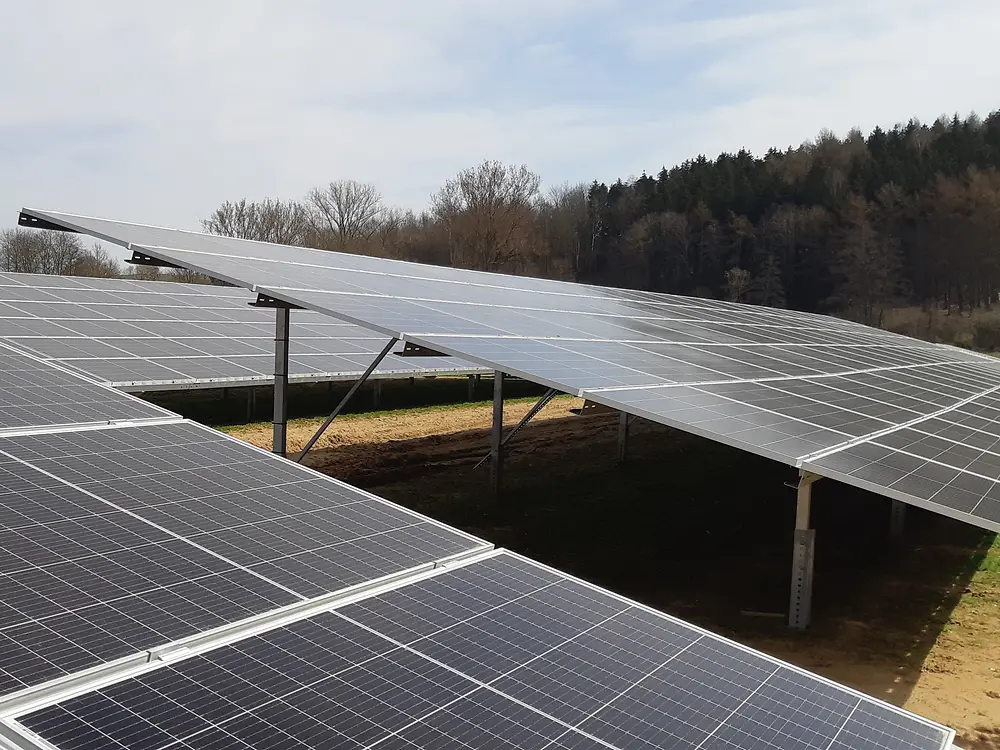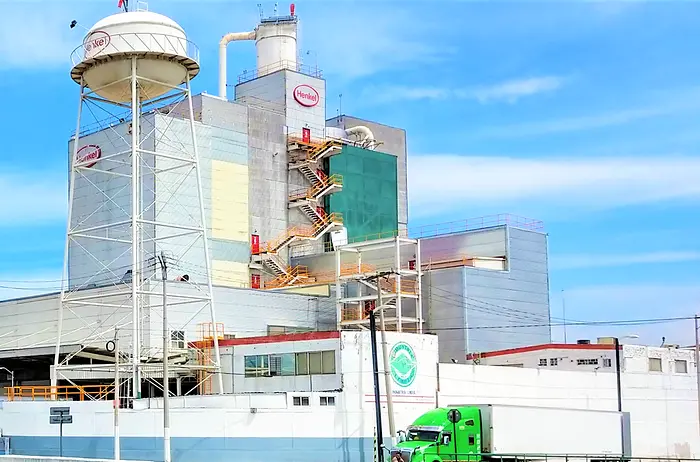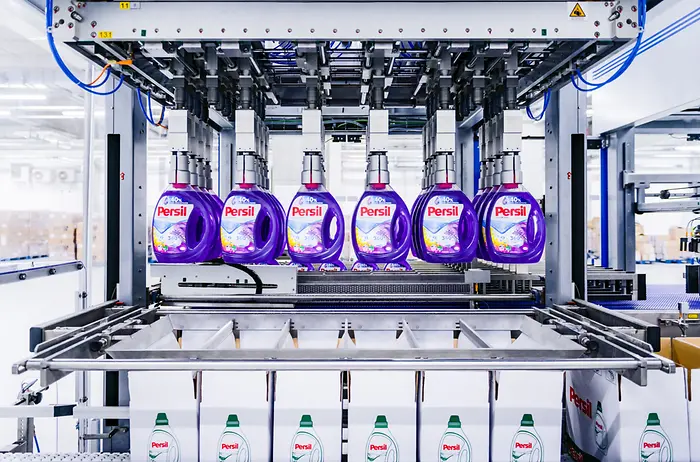The company has already been exclusively using green electricity and biogas for the Düsseldorf production of liquid products and dishwasher tabs since July 2021. With the switch to CO2-neutral energy, especially sustainable fuels (biogas) for the energy intensive manufacturing process of powder products, the Laundry and Home Care production now reaches climate-neutrality. The Düsseldorf production facility at Henkel's second-largest site worldwide has already received several awards for pioneering in Industry 4.0 as well as its sustainable production processes, for example by the World Economic Forum. Also, the on-site central warehouse is now operating on a CO2-neutral basis, serving Henkel Laundry & Home Care customers across Europe.
Henkel's largest Beauty Care production site in Germany, located in Wassertrüdingen in Bavaria, now also operates exclusively on CO2-neutral energy for the production of hair and body care products. To achieve this goal, a 17,000 m² photovoltaic system was installed on the roof of the production facility and a surrounding field last year, among other things. The photovoltaic system generates as much energy as is needed for an average annual energy consumption of 450 households. In addition to green electricity, this site also uses biogas.
Yet, Düsseldorf and Wassertrüdingen are not the first German Henkel sites to convert their production sustainably. The Henkel Fragrance Center in Krefeld has also been producing CO2-neutrally since August 2021. The research and production site covers its entire energy demands with green electricity and biogas.
“We have developed new long-term ambitions as part of our sustainability strategy. One of these ambitions is to become climate-positive in our production already by 2030, thus ten years earlier than initially planned,” says Ulrike Sapiro, Chief Sustainability Officer at Henkel. “We have more than 170 production sites worldwide and are working intensively to switch completely to CO2-neutral fuels, obtain electricity from renewable sources and improve the overall energy efficiency. Düsseldorf and Wassertrüdingen are setting a good example here. On top of that, we will set a net-zero pathway for our Scope 3 emissions.”
Henkel is pursuing ambitious goals to make its production processes climate-positive by 2030. By 2025, the company aims to reduce the carbon footprint at its sites worldwide by 65 percent compared to the base year 2010. 50 percent have already been saved to date. The electricity used is to be generated 100 percent from renewable sources by 2030. Today, the share of renewable electricity at Henkel is already 68 percent. In addition, the company aims to replace the last remaining fossil fuels in production with climate-neutral alternatives, such as biogas. To become climate-positive, Henkel will also supply surplus CO2-neutral energy not required for its own purposes to third parties.













